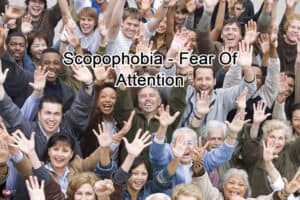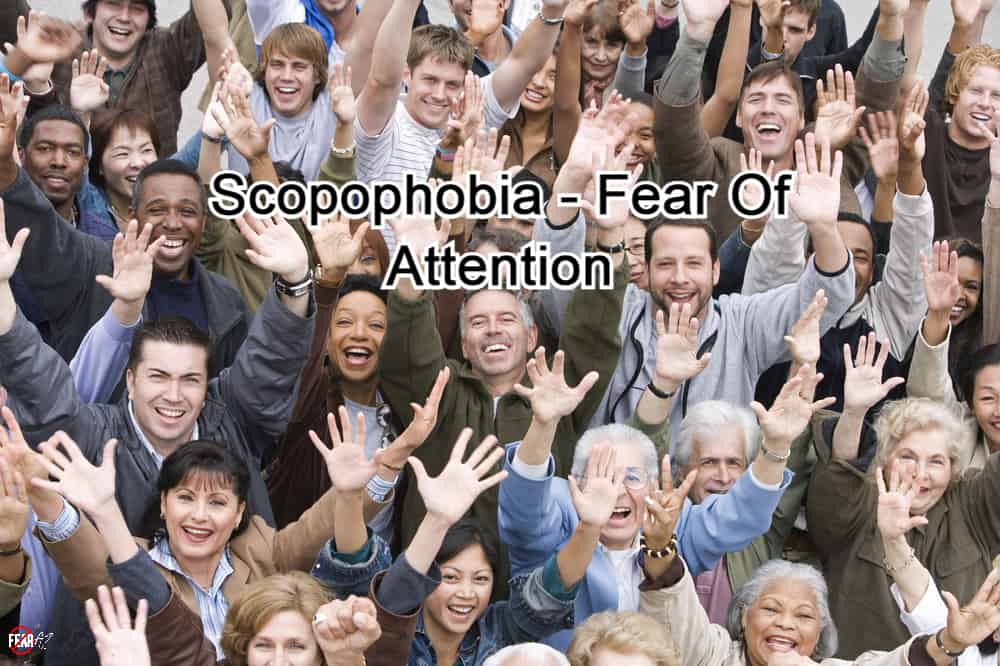Share This Article
Some Fear Any Attention—Excessively
Are you plagued by paranoia that someone may be staring at you? Do you get anxious merely thinking about being the center of attention? Have you always held back from sharing your thoughts or opinions to avoid being in the limelight?
Everyone experiences some level of uneasiness when someone watches or stares at them. After all, not everyone likes to be the center of attention.
But, if your uneasiness goes beyond the regular level and reaches a point of fear, you may be suffering from scopophobia, which is the fear of being stared at or fear of getting attention.
Scopophobia, also called scoptophobia, is a social anxiety disorder where a person is afraid of being watched or scrutinized. It’s a difficult condition that causes an individual to feel paranoid and avoid socializing at all costs. They may even feel afraid of speaking of their condition for fear of being scrutinized further.
The phobia belongs in the irrational fears list, since the object of the fear — being stared at — is entirely harmless.
Fortunately, there are ways to address this phobia so that it no longer negatively affects your life. With proper care and treatment, you will be able to overcome your fears and live a healthy, happy, and sociable life.
What Is Scopophobia?
Scopophobia comes under both specific phobias and social anxiety disorders.
Specific phobias are phobias wherein a person is afraid of a specific thing or situation. And social anxiety disorders are when a person grows highly anxious when put in a social situation.
Scopophobia arises from the fear of being judged or scrutinized. An individual suffering from this phobia wants to do nothing that will attract attention or scrutiny. It starts with a feeling of embarrassment, which when left unchecked develops into a phobia where one cannot stand a negative response and wishes to not perform any action in front of an audience.
While there is always going to be judgment in what you do, this phobia causes one to feel fear that is out of proportion to the situation. Often, the person feels the attention in an exaggerated manner that’s much more than what they may actually be attracting.
So, a person may feel they are being watched, but they are not.
Additionally, people with scopophobia also tend to suffer from other disorders, such as autism, epilepsy, panic disorders, body dysmorphia, eating disorder, obsessive-compulsive disorder, mood disorders, generalized anxiety disorder, attention deficit hyperactivity disorder, post-traumatic stress disorder, and more.
Scopophobia interferes with the person’s daily life as they will often avoid being in situations where they may be stared at. So, they may procrastinate running errands and avoid social gatherings, eventually avoiding being around people at all.
This not only impacts their work life but personal relationships as well. They may become isolated and lonely, attracting additional anxieties that only worsen with time.

Scopophobia Causes
Like most phobias, the causes of scopophobia or the fear of attention are undetermined. However, we can generally categorize the causes into two major factors: genetic predisposition and environmental factors.
Childhood trauma or people laughing at a mistake or being heavily criticized for doing something wrong may lead to a person developing the phobia.
If a person has a history of mental illness in the family, that also increases their risk of developing a phobia. In such cases, a very small event can onset the phobia.
Scopophobia Symptoms
People with scopophobia experience social anxiety disorder symptoms along with general anxiety symptoms. Here are some of the most common symptoms of scopophobia.
Physical Symptoms
- Sweating
- Trembling
- Dizziness
- Nausea
- Light-headedness
- Chest pain or discomfort
- Abdominal discomfort
- Blushing
- Racing heartbeat
Mental/Emotional Symptoms
- A strong feeling of wanting to escape
- Feeling of dread
- Feeling of doom
- Panic attack
- Anxiety
- Paranoid thoughts
- Overly concerned or worried before a social event
Treatment of Scopophobia
There is no one treatment for the fear of being watched, but there are several treatment options that are personalized according to the symptoms and the advancement of the phobia.
Most treatments focus on helping the patient realize that the fear is irrational. They work on making the patient feel calm and composed and change their thought patterns. These treatment options can teach a person to reevaluate the situation and see things from a different perspective.
Self-Help
There are many self-coping techniques that can be very helpful during an anxiety or panic attack.
Relaxation techniques like yoga, deep breathing, counting numbers forward and backward, meditation, muscle relaxation, and visualization are all known to be highly effective at helping with anxiety.
Regularly practicing such self-help techniques can also help a person overcome their fears and develop and maintain positive relationships with people around them.
Reassess your negative thoughts surrounding being scrutinized, judged, and disliked, and replace them with thoughts of acceptance, love, and support. Instead of focusing on your flaws, focus on what you are best at. Journaling can be a great tool to help you do this. It can help you record and assess your thought patterns, giving you a better insight into your mind and helping you address your fear effectively.
Professional Help
Seeking professional help is often recommended to address scopophobia. Mental health professionals are trained in understanding the human mind and dealing with mental issues like phobias.
They will typically use one or more therapy techniques to help the patient learn different tools to deal with their fear.
The most common therapies used for treating people with scopophobia are exposure therapy and cognitive behavioral therapy (CBT).
Medication
In rare cases, if a person is experiencing repeated panic attacks, the doctor may prescribe anti-anxiety medications like beta blockers, benzodiazepines, selective serotonin uptake receptors, or monoamine oxidase inhibitors.
These medicines are given only for a short period until the patient becomes stabilized.
Learning to Cope with Scopophobia
Social anxiety disorders like scopophobia can be debilitating and affect various aspects of a person’s life. It can disconnect them from their loved ones, which makes reaching for help that much more difficult.
Before things become worse, it’s important to seek professional help and practice self-help techniques. You should also talk to friends or loved ones or join a support group, so you’ll have a support system in place to help you through your healing.
In Conclusion
Scopophobia can be difficult to deal with, but it’s not impossible. Acknowledging you have a phobia is the first step to your healing. So, make sure you reach out for help, and with some time, patience, and effort, you’ll be well on your way to dealing with and even overcoming your phobia.



